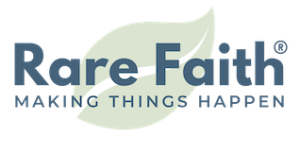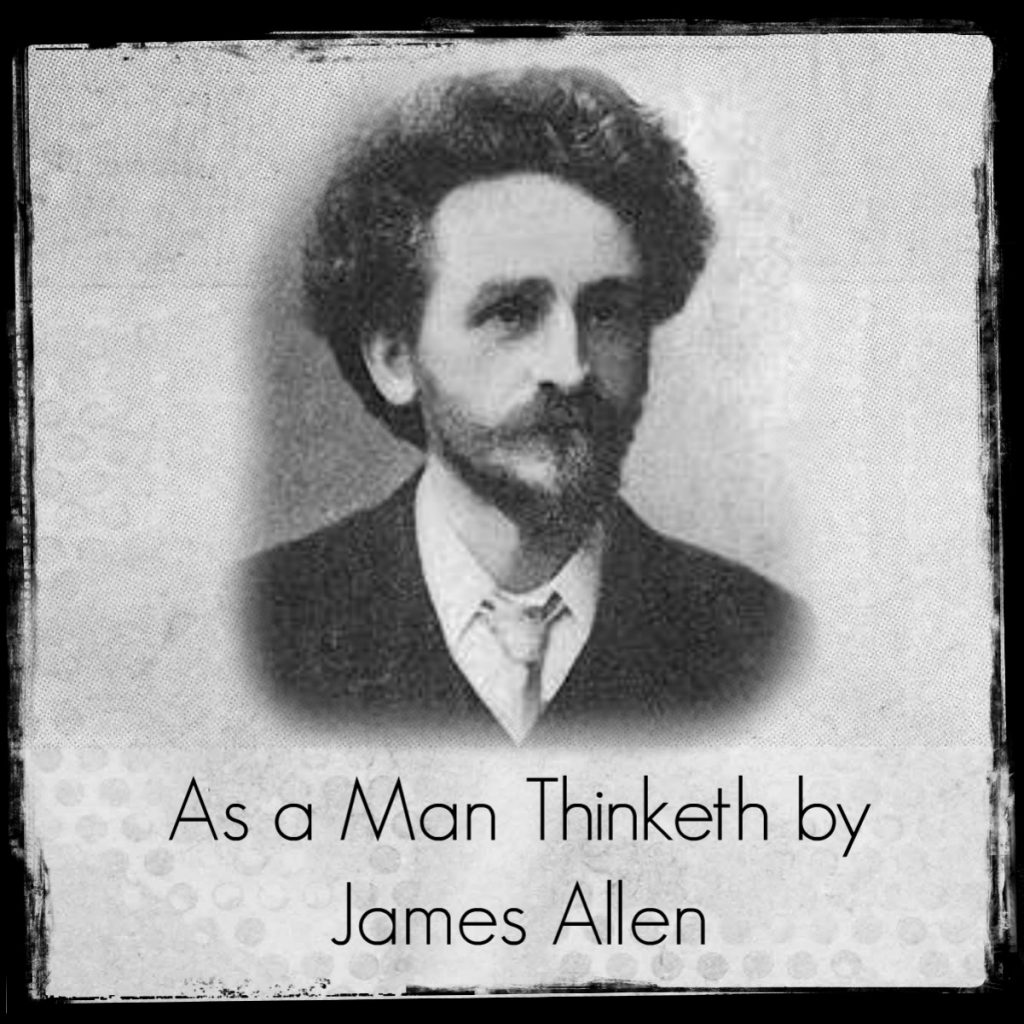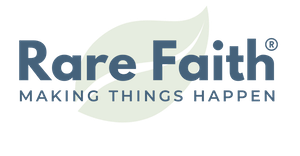Watch with slides:
I was asked to speak on the topic of my book “Hidden Treasures: Heaven’s Astonishing Help with Your Money Matters”. The following audio is the recording of my class. This book is available free at www.hiddentreasuresbook.com
Class Description:
The Hidden Treasures: Heaven’s Astonishing Help with Your Money Matters class will lead you to a higher awareness of the laws connected to the blessings of prosperity. The ideas will astonish you; and you’ll feel empowered as they comfort, encourage, and enlighten you on your journey to financial peace of mind (and even deliverance). Hidden Treasures is about finding riches after having obtained a hope in Christ, for the intent to do good.
But even more, it’s about discovering treasures of wisdom and knowledge which have been promised to those who diligently seek. Many have wondered, “If the ‘Righteous Shall Prosper,’ Why am I so Broke?” Or, “Should I just give in to ‘setting my heart upon riches,’ or simply resign myself to the smothering prison of debt and the stain of poor credit?” This class will answer these questions, and many more. Includes information and stories not contained in the original book.
TRANSCRIPT:
ANNOUNCER: Welcome to the Rare Faith Podcast, where the solution to every problem is only an idea away, and where the same activity with just a little more awareness, always yields better results. Award-winning, best-selling author Leslie Householder brings some of her best information to this inspiring series of life-changing episodes that you won’t want to miss. Show notes for this episode can be found at ARareKindofFaith.com.
LESLIE: Welcome to this class. This is the Hidden Treasures: Heavens Astonishing Help With Your Money Matters class. How many of you have already read the book? I’m just curious. Anybody? You’re reading it now? Okay. How many of you have downloaded it? Okay. Did you know it’s a free download? It’s right here. It shows you where you can download the book for free. And so a lot of what we’re going to talk about today is in the book, so if you don’t catch the notes, just go download it, okay? And then tell your friends.
I am excited about the message that I have to share because of what it’s done for me in my own life. How many of you have read Jackrabbit Factor? Anybody? Raise your hand higher so I can tell. That, by the way (and I’ll point you to that later), but that is also a free download. Some of you don’t know. Some of those who are familiar with my work, I actually wrote Hidden Treasures first, and had that available for about two years before I wrote Jackrabbit Factor. And the reason I wrote Jackrabbit Factor is because I needed a story that would help people internalize the concepts and take it from their head to their heart where it could really make those changes.
When we face challenges in our life, we hit a block. We face something that we’ve never faced before or something bigger than we ever thought we would be able to conquer and there it is. And so the questions that we ask: Why is this happening to me? How am I going to solve it, right? Where is the resource gonna come from to rescue me or to help me understand and solve this problem? Who’s gonna help me? Right? These are common questions. And be thinking–I’d like you to be thinking particularly of something in your life right now that you would like to conquer or something that you would like to change or something that you’d like to figure out. Just have that in the back of your mind, and this class will be more meaningful to you as you do that.
But as we ask these questions, what is a common conclusion, do you think, with people who ask these questions and maybe don’t have answers to them? What is the conclusion that you settle with? It can’t be solved. Do you think that’s a common conclusion? Or just that you know what–there’s no way! There’s no way! This one is too big! This is bigger than me! This is bigger than–I can’t do this alone! Whatever it might be. So if we lack the ability to accomplish something that we’re trying to do, in essence, we are in bondage. Would you agree with that? It’s a feeling someone looking at you may not recognize. Oh, she’s in bondage, or he’s stuck. But it’s something that goes on in our heads, and it’s a way we feel, and it has an effect on what we do. It has an effect on how we feel about ourselves. It has an effect on how people around us feel about us and about themselves. And so this class is about looking at that bondage and figuring out a way to break free from it.
So what I like to do is take a look at stories from the scriptures where we can see where somebody maybe has been in bondage, and how did they get out of it. One of my favorites is the story of Gideon and the Midianites. I don’t know why I had not been familiar with this story. I know it’s one of the more favorite scriptures from the Bible; but I was fascinated by the story, and the idea is to liken the scriptures to the the situations that you go through.
Take the story of the Midianites; and we’re going to compare those to, like, the Midianites were the people who were oppressing Gideon and his people. They were in bondage, and they wanted to conquer this and have freedom. So that is like our challenges. So let’s look at this in Judges 6. It says: “and Israel was greatly impoverished because of the Midianites and the children of Israel cried unto the Lord”. So when we feel impoverished, when we feel needy, we also pray. We also call upon God to help us. So here was what the affliction was. This is the Lord’s response to this problem. He says: “Thus saith the Lord God of Israel, I brought you up from Egypt.” So he’s telling Israel–Look, let’s remember, let’s remember back in time a little bit; and let me remind you what I’ve done for Israel in the past. I brought you up from Egypt and brought you forth out of the house of bondage. And I delivered you out of the hand of the Egyptians and out of the hand of all that oppressed you, and drove them out from before you, and gave you their land.
And Gideon said unto Him: “O my Lord, if the Lord be with us then why is this all befallen us and where be all His miracles which our fathers told us of. But now the Lord has forsaken us.” I love that scripture because to me Gideon is ancient history and so is Moses. That’s just–in my head I’ve lumped them together. But look what Gideon’s saying. He’s like–yeah, but that was in olden times when the Lord was with the Israelites. Where are you now? That’s in the olden days. That’s in ancient history when you helped Israel, but what about now? Do you ever feel that way? I like to look at that and say, “All right, we are no different. The Lord can help us, and he can help us as he helped Israel with Moses; as he helped Israel with Gideon. And the Lord is the same today, yesterday, and forever.”
And so it’s easy to look at ancient scripture as, “Oh that was back then.” But Gideon was doing the same thing. So let’s see what happened to him. Here was the plan. The Lord looked upon him and said: “Go in this thy might and thou shalt save Israel from the hand of the Midianites. Go give it all you’ve got. Give it your best shot.” And he said unto Him: “O my lord, wherewith shall I save Israel. Behold my family is poor in Manasseh, and I am the least in my father’s house.” These are his excuses. We have excuses, right?. We do this all the time. It’s human nature. And the Lord said unto him: “Surely I will be with thee, and thou shalt smite the Midianites as one man.” All right! So this is where it gets interesting. The Lord said unto Gideon: “The people that are with thee, your army, is too big. There are too many for me to give the Midianites unto their hands lest Israel vaunt themselves against me saying mine own hand hath saved me.” Gideon had too much of an advantage. And he’s like, if you’re gonna go fight Midian I need you to reduce the size of your army. Otherwise, when they win (which they will, by the way) when they win, they’ll think it was them; and I need you to know it was me.
Think about your situation. It feels bigger than you can handle. Perfect, that’s perfect, that’s the way the Lord wants it so that we can understand where the victory really came from. “Now, therefore, go to, proclaim in the ears of the people saying; whosoever is fearful and afraid let him return and depart early. So he’s like–go to your armies and find out who’s scared. Just send them home. They’re not helping. You know their bodies being there full of fear is not going to help you conquer this, and so let’s just send them home. “And they return to the people 20 and 2,000 and there remained 10,000.” So that’s 2/3 of the people sent home because of fear. Sometimes, I know in my life when I’m feeling fear, I feel like I’ve got more fear than I have faith. But if I can send that away, what little faith is left behind is enough. And in this case, this is kind of funny–well, it’s to realize, first of all, capacity is not the advantage. Two-thirds were feeling fearful, a third were courageous, and it’s better to fight without the fear even if the faith remaining is small. But it was still too many. The Lord said unto Gideon: “The people are yet too many. Bring them down into the water, and the number of them that lapped putting their hand to their mouth were three hundred men. All the rest of the people bowed down upon their knees to drink the water.” So some are bringing the water up to their mouths, some are coming right down with their mouths to the water and drinking. And the Lord said unto Gideon: “By the three hundred men that left will I save you.” What did they start out with? 32,000 down to 300. 300! Oh my mercy! “And so by the 300 men that are left will I save you and deliver the Midianites into thine hand, and let all the other people go, every man unto his place.”
So let’s look at what this plan was and be thinking about what you’re facing. Again, I’m just curious–how many of you are very, very familiar with this story already? Raise your hand. How many of you, if you’re kind of feeling like you’re hearing this for the first time? Awesome! I love seeing that. I like being the first one to point it out because I love this story. So we’ve got 10,000 reduced to 300. So here’s the plan in a nutshell. The number one–Send the fear away! Period! Number one: Send the fear away! Number two: Go to the water! I don’t know if that was intended to be symbolic, but I saw symbolism there; coming to Christ the living water.
Here’s the next part. Victory is declared. Into his hand. This is Judges 7:14. It says it just this way: “Into his hand hath God delivered Midian and all the hosts.” They hadn’t begun fighting yet when this is declared, and yet, it is said in past tense as though it’s already happened. This was declared even before the battle had begun. Into his hand hath God delivered Midian. And we’re going to talk a little bit about the language of faith. The language of faith declares things before they are real. It expresses gratitude for the things you hope to receive as though you’ve received it. It’s called speaking the truth in advance. There’s a piece of us that says, “Well I’m lying.” No! You’re speaking the truth in advance because all things are before God all at once from the beginning of creation to now. In the future it’s all before God, all at once, and so this linear experience we have with time right now is just our mortal experience. But all things are present before God, and so He can see, “I’ve already delivered Midian into your hands”. Now let’s just play it out.
So we’re going to talk a little bit about this Proverb 23:7: “As a man thinketh in his heart, so is he”. So the purpose of this is to look at what you want to change in your life. Look at what you’re trying to accomplish. Look at what you want to conquer. And let’s work on becoming the person, becoming the man who thinketh in his heart that way so it can be as you want to be. And to do this I’m going to share with you an illustration that I learned from a teacher named Bob Proctor many, many years ago. And he learned it from a man named Dr. Thurman Fleet, who created something called Concept Therapy in the 1930s. And what this did for me, to give you an example–I’m gonna give you a math problem, and I want you to figure it out and give me the answer. Okay? No pens, alright? Just in your head, all right. What is the sum of sixty-three thousand five hundred forty-two point nine five and three hundred and sixty-three thousand four hundred seventy one point 0 one? Oh, I got it! Is it a hard problem? Is it a hard problem? If you have a tool, it’s easy, right? Okay, so it’s–I don’t know what it was. Yeah. No, not supposed to write it down, and here’s why. Now, if I were to say, I’ll give you the problem again or a variation thereof, and this time when you write it down I want it to look like this, okay? So you can write it down, but you get to do it longhand. All right, here we go. What is the sum of six hundred ninety-three thousand four hundred twenty two? Okay, do you get the point that– no you don’t get the point. No. Here’s the thing. It’s not a hard problem, but in order to solve it what do you really need?– numbers, symbols, okay? So, if you have symbols, you can look at it and say, “Oh, easy, dit,dit,dit,dit, done and it’s accurate, alright.
So for seven years I was attending seminars and reading books that were trying to help me understand this concept, “as a man thinketh in his heart so is he”. And it is teaching me success principles; how to think positive so that you can have positive results, how to set goals properly so that they can be achieved. All of this! I was eating it up, and I knew there was something to it; but I could not quite get it to work. You know, I saw it working for other people; but, for whatever reason, I just couldn’t get it to work for me. And then Bob Proctor showed me this illustration that I’m going to show you. And what it did for me is it gave me numbers to solve the problem with. Because all of those books, all of those seminars was a lot of verbage. Ya ya ya 600 million ya point do ya.. The point bit of that. And I’m like, “Yeah, I know it’s easy, but I can’t seem to get the answer. I can’t seem to get it to work.” And then he showed me these symbols, and I’m like, “Oh, bam bam bam got it!” I know what I’m doing with my head. I know how to think, and in three months we tripled our income. That’s what the power of this diagram is that I’m about to show you . And I’ve had, there are thousands of people who have had similar success. Just understanding success principles and this concept; “as a man thinketh in his heart so is he” in symbolic form. Alright! So, and if you miss any of it, I do have a video online that you can watch for free that you can take in at home and get the details.
So this is called the mind model. This is what was developed by Dr. Thurman Fleet in the 1930’s, and this is a representation of your mind. Your mind has three components. I know it looks like a little person, but this is actually a symbol for your mind. The top part of your mind is your consciousness. Then you’ve got your subconscious, and then you’ve got your body. And why is it included in this mind model? It’s because your body is a tool of the mind, and we’re going to learn how to use it as such.
So let’s first talk about the conscious part of your mind. This is where your awareness is. This is the part of you that knows you are aware. A dog might be aware, but I’m not sure that he’s aware that he’s aware. You see what I mean? So we are conscious and aware. It’s also the part of your mind that adds meaning to data input that you receive. So you go and open the mail, and there’s a bill in the mail that says you’ve got a late notice, and right there you’re going to assign meaning to it. Is that a positive experience? Is that a negative experience? That’s something that is your choice. We need to step back and realize that what happens is not inherently good or bad, but what meaning you assign to it. For example, someone opening the bill may say, “ Oh man, this is awful! So-and-so didn’t pay it. You know my husband or whatever missed the bill and oooo”, and turns into this big negative experience. That was a choice. That was a conscious choice to assign a negative meaning to it. By the same token you could open that and say, “Oh my, gosh, it’s late though, what, I wonder what happened. I’m so glad I got this now before we were heading out of town tomorrow, because I wasn’t going to be back for three weeks and something would have been shut off.” So you can assign a positive meaning to it. That’s your choice, and that’s something that we do with the conscious part of our mind.
It’s also the part of your mind that has the ability to accept or reject ideas. So as I’m sharing these concepts with you, you are consciously judging it against what you already know and seeing if it fits; and that’s what you’re supposed to do. (And there’s a fly.) So. And that line separating the conscious from the subconscious is the symbol for rejecting the filter, for rejecting the idea that you choose to reject. And finally it is the part of your mind that has the ability to create something out of nothing, create a whole brand new idea.
I could ask you to think of some crazy animal that doesn’t exist in the real world, and each one of you would come up with something completely different that had never been conceived before and that was all yours. That’s what our conscious mind has the ability to do. And this piece right here is your ticket to solving any problem that you will ever face in your entire life. And it’s a part of you that’s generally discouraged and suppressed through the childhood years. Yeah, it’s alright and fun and good to do this in kindergarten–to be creative, but then they start saying, “Oh, Honey, giraffes aren’t purple. Oh, be careful here, you’re out of the lines,” and eventually by the time we’re adults, we have turned that off; and we are looking for only providing answers that already fit into the box that we’ve been provided. So we need to wake that up. It’s a God-given gift to be able to think. Bob Proctor told me once. First time I met him was at an event in Phoenix. I went up and met him in between sessions. He had told us in the class that he can just look at a person and tell whether or not they’re more creative or more analytical, left brain or right brained,and just by looking at them; and I went up afterwards because I wanted to see this little circus trick. So he said, “I went–you know, where do you put your hands”. And he looks at me, he goes, “You know you’re primarily creative. You got a good balance between the two, but you’re primarily creative.” And I thought, “Okay, he doesn’t know what he’s talking about. I’m a math major, you know.” And so I discounted that, and I said, “You know I have a hard time believing that because I am always thinking. I am always looking at what’s going on, and I’m analyzing, and I’m hashing things. I’m remembering what happened last week, and I am processing doing this process.” And he looks me square and he says, “Your mind is busy but you’re not thinking”. And I thought. “Was I just insulted?” I wasn’t sure, and I went home, and I processed that for a whole year. I’m thinking, “What did he mean by that–your mind is busy ,but you’re not thinking:. Anyway, I finally figured out what he meant by that. I’m gonna share that with you here soon because he also, by me saying that I always process, I am always analyzing, whatever; he knew, number one, that I was stuck, and that I couldn’t get out of my stuckness. He knew that. He probably thought, “Oh, you poor thing. You process. I’m so sorry, I’m so sorry for you.” And when I learned that he meant, to think is to create. There’s a difference between your mind being busy and thinking. To think is to create. And that’s represented by this symbol here with the little cloud. Okay, remember that. We’ll come back to it.
All right! So now let’s talk about the subconscious mind. The subconscious mind is where your automatic life-sustaining functions are handled. It’s the part of you that keeps you breathing all day long. It’s the part of you that keeps your heart beating all day long and all through the night. How long would we live if we had to put it on our checklist to remember to keep our heart beating. We might get busy and forget to put that one in there, you know, and so God knew that he needed to give us a control center in our brain that would handle those things that he couldn’t trust us to handle on our own; and that’s what the automatic life-sustaining functions are all about. This is also the part of you that cannot reject ideas. If an idea reaches the subconscious it’s just like, “Oh, that’s true, okay!” It doesn’t judge. It doesn’t discern. It just accepts. It’s also the part of you that responds to thoughts that are charged with emotion. So the bill comes in the mail, and it says ‘late notice’, and you’re taking that data in, and you assign a negative meaning to it, and then you get emotional about it; you’re communicating with your subconscious mind, and you’re telling it something, you’re telling it something. And we can explain that in just a minute because, it’s important that we tell our subconscious mind only what we want it to believe. So now the body, this is the tool of the mind. This is the part of us where our behaviors are displayed. This is the part of us where our health conditions are manifest. It’s the part of us that takes action. This is where our works are demonstrated. It’s also, you might find this interesting. it’s also the part of us that shows our countenance. Our countenance shines through it. It is not our countenance, but I believe it shines through it, and so people are going to respond to the way they feel around you; and they’re going to perceive things when they see you. This tool, this body–the tool of the mind, it has an effect on our success as well. And so the outer conditions of a person’s life will always be found to be harmoniously related to his inner state. Men do not attract that which they want but that which they are. As a man thinketh in his heart so is he, right?
So let’s look at this in symbolic form. As a man thinketh in his heart or in the subconscious; I’m going to use those as interchangeable; (you can’t really tell that this is lighter) so as a man thinketh in here so is he. These are the results that you’ll see out to the right. So it’s not what we think consciously. It’s not what we do action wise. It’s what’s going on inside of us that has more control over our results than anything. Here’s why we remain in bondage. So we’ve got these five little antennas on the top of our head (it’s symbolically) that represent our five senses. We see, hear, taste, touch, smell.(and again, this video is online and it’s free so you can get all the details). And the reason we remain in bondage is because here we have some kind of an idea or a belief in our subconscious mind that is already accepted as true whether or not it may be true. This is a child that has not developed a filter yet. Any child who is hearing things, taking it in; and when they’re young they’re not saying, “Oh, that’s not right”, are they? They’re just, “Yeah’ oh, yeah.” So stuff is coming in here through our childhood that’s there and it may or not be true, and it stayed there and it’s still there. So do you think there’s things in the subconscious mind that, do you think it’s all true what’s in your subconscious mind? Can you think of one thing consciously that might be in there that you know is not true. I’m not good enough. Do you remember a time where that may have been planted? Okay. Consciously you know better, but it’s in there, and it affects the results that we have. Okay.
So here’s what’s going on. Whatever that concept is, and there’s a billion of them I’m sure; but let’s just take the example of one idea in the subconscious mind that has been accepted as truth, because that’s where it is. And it moves your body into a state of being. I’m going to call it a vibration. Everything on a molecular level vibrates at different rates, and emotions have different vibrations associated with them. And so it’s those ideas in the subconscious mind that control our vibration of our body, and it’s the part of you that–You know, you go into an elevator, and you–somebody walks in and you get an initial sense about that person. It’s just these vibrations that are emitting, and you sense those things. For example, have you ever walked into a room, and the person in there, you know they’re mad; and they haven’t even said a word. Okay, so a feeling is nothing more than a conscious awareness of a particular vibration.
So here’s the thing, we decide whether something is possible. Remember back at the beginning I said we look at our problem. We think how is this gonna work? Where are these resources going to come from? Who’s gonna help me? We don’t have answers. We decide whether something is possible based on the evidence that we see, and here’s what’s happening. We see our results. Those results are out there, and we’re going to take that data in to our consciousness through the five senses, and we consciously see our results. We see the condition of our checkbook. We see the condition of our car, whether it starts or not. We’re taking this data in, and so the question is, how do you feel about things the way they are. Images charged with emotion become instructions for the subconscious mind. The data input, the circumstances of your life as you observe them, as you interact with that relationship that you’re struggling with, as you look at the bills and you’re feeling angst, as you look at your health and you’re recognizing the pain; you’re taking in data input through your five senses. Now how do you feel about those circumstances? As you feel about that data you’re adding emotion to it, and those thoughts charged with emotion become instructions for the subconscious mind.
Our subconscious mind is designed to, well now remember. Why did God give it to us? To keep us alive. It’s also to keep us safe. Have you ever been to a scary movie? And my husband, he’s so funny. You watch any kind of a action movie with him and he’s over there bouncing. His knees are bouncing. He’s tense, he’s like this, and I’m just watching him. Like, “It’s not real, Honey, I promise”, you know. But as an image comes in and there’s emotion attached to it, your body is going to move into a vibration that corresponds with those images, and it responds. And it’s the adrenaline pumping and it’s all there. You think about it. You’re watching a scary movie, and you’re starting to feel that adrenaline. Why is your body releasing adrenaline for you? What’s the adrenaline for–fight-or-flight. It’s helping you get out of there because it has received the image. It feels the emotion. It thinks your life is truly in danger, and it’s giving you a physiological response to save your life. So your subconscious mind is a wonderful, wonderful advocate for you, but it’s not that smart. You’ve got to use your conscious mind to filter what’s real and what is not. If you’re watching the movie and the whole time we’re thinking not real, not real, not real, that adrenaline is never going to release because you’ve coached your subconscious into being–“And don’t worry, it’s okay, you don’t have to save my life today.” Alright?
So here’s what happens when you take the data in, and you allow it to be charged with emotion. It sends the instruction to your subconscious mind that says either keep doing what you’re doing, or you better do something different, because my job as the subconscious mind is to keep you safe. Now think about that, if you have a belief deep down that it’s safer to be obese, or you have a deep down belief that it’s safer to be poor, because, after all, the rich can’t go to heaven; or you have a belief that it’s safer to be single because relationships are too hurtful, or whatever it might be, your subconscious mind is just helping you stay safe. And if you consciously know better, there are ways that you can help train your subconscious mind to be okay with what is true. And so here’s what happens. As the idea is charged with emotion, and you’re giving that instruction to your subconscious mind, it moves your body into a corresponding vibration. This vibration affects your countenance. It affects your energy It affects your stamina. It affects anything physical. And so here’s what happens. Once your body is in that vibration, the natural byproduct are more of the same kind of results because, remember, as a man thinketh in his heart, as what’s going on in the subconscious mind, so is he; and so that’s what you’re going to get. So when I saw that I thought, “Oh”, I was looking at our problems and realizing it was me all this time, because I am super, super emotionally charged about how bad things are; and that’s what I was doing for seven years.
You know, I would go to the events, and I get all pumped up. Everything’s gonna be, everything’s gonna be great! Everything’s gonna change, and I’d come home and I’d start getting the data input. “Look at what reality is, Leslie. Here’s your reality, here is your reality. I’m so mad at this reality.” And boom there’s an instruction. Let’s have more of that, because that’s what’s safe. Ooh, you know what though, but at the same time I was feeling like, it’s me, and I can change this. That’s the second part, is if I am the one perpetuating the problem, then I can consciously change that and create something different. Let’s see how. The first step to faith is to picture the alternative, picture the alternative, and for some this is about the hardest step, because we’re so unpracticed about using this creative faculty of our mind. What would that look like, the alternative to what you’re getting. Well in my case, I wanted to be in a home of our own instead of an apartment with cigarette smoke coming through the outlets for a non-smoking family–the data, daily data input of how bad our life was and where I didn’t want to be. So the first step was to imagine what would it be like to be in my own home. Wow! I’ve never had that before. What, what would that feel like? Okay, that’s about the most powerful question you can ask yourself ever to change your life. What would that feel like? Oh, yeah, it’d feel great, duh! You know. No! No! No. No. The only way to really answer that question is to feel it. How do you feel it if it’s not true? How do you let yourself feel it if it’s not real yet? How do you feel it? Pretended it is real. Visualized it. Write it out.
Okay, now here’s the thing; you can visualize it. Yeah, yeah, okay, that’s what I don’t have, or visualizing it–like imagine that I was. Pretend like you’re an actor for 10 minutes and be in that movie. Instead of playing it in your head as a movie or watching, be in it. And the first time I actually did this, I did it accidentally, and I thought I was doing something wrong because I had been trying for seven years to break out of this bondage that we were in; and the speakers would always say “Dream big. Picture what you want. Dream big. Picture what you want.” Yeah, yeah, got it. But what do I say to the prospect? Okay, dream big, okay! I know, I know, I know. I got a big dream, got it, but but what do I– you know, how do I schedule my time? Dream big. Picture what you want, okay. Yeah, but what do I do with this relationship over here that’s driving me crazy? I was hearing it. I wasn’t listening. And so finally things got so bad (and you’ll hear this on my video online) but that I came outside one day from that apartment, and there was my broom on the ground and had been broken by some neighbor kid, and I called the police . That’s where my mind was. This is–Have you ever had a neighbor like me before? I, you know be compassionate. They’re going through some stuff.
But there was, there came a point where I thought “You know what? Picture, what you want, dream big. Fine, I will.” And I just thought, “I’m gonna just escape, escape mentality.” I went to my room. I closed my eyes. I’m like, you know what, if I can’t have it in reality because I’ve given up on that, I’m just gonna pretend like I have it. I’ll show them, spite them, you know, and the people who would tell me just dream big, picture, picture what you want. I’m fine, here I go. So I did that. I imagined what it would be like to be in a house, and it was harder than I thought. It’s work! Thinking is hard work. I think it’s Bertrand Russell who said, “There is no, there is no harder work than to think. Most people would rather die than think. It’s exhausting. It really is. But the alternative is even more exhausting.” You know the long-term bondage cycle is super exhausting. And so I, I closed my eyes, and I thought, “Well, what would that feel like?” I have to imagine, pretend like I’m there. Really what I’m doing is I am creating an image, and I’m handing it to my subconscious mind with emotion so that it will release those, those hormones, or whatever it is, that gives you good feelings because it thinks you’re really having those experiences. It can’t tell the difference. Okay, write this one down. Your subconscious mind cannot tell the difference between an experience that is imagined and one that is real. It can’t tell the difference. Your subconscious mind cannot tell the difference between an experience that is real and one that is imagined. So that day I was imagining being in a home, and I did that until I started to feel what that might feel like. That’s a physiological response to your subconscious mind observing a new reality as though it’s true, and saying, “Oh well, if that’s your reality, this is how you’ll feel”; and it provides that release of chemicals that would be the same feelings you would expect to feel when it’s real. So you get those chemicals going before it’s happened and what does that do?
But here’s how you take it from that thought cloud into your conscious mind. You get this idea. Well, it might be nice to be in a house of our own, and then you take time to ponder it consciously, and as you do that long enough( it doesn’t have to take long). It might take long the first few times you do it. You get used to it. You can train your brain, but you start wondering, well, you start thinking it is possible. I am able. I have all that I need right now. I have loving relationships, speaking the truth in advance just like Gideon and the Midianites, okay; try it on for size. See how it feels, and as its charged with emotion, and remember you’re just asking how would it feel? How would it feel if it’s already accomplished? So, as you consciously think about it, let yourself get emotionally involved with it, it hands over new instructions to your subconscious mind.
Faith is heartfelt belief in something unseen. And heartfelt doesn’t have to mean intense either. I used to think that in order to achieve a goal I had to have intense immovable belief. I found out that’s not true. I found out that your belief can be itty-bitty. How big–as a mustard seed. Here’s the deciding factor, though. It’s having belief without doubt. So, it’s not how big is your belief, it’s do you have a little bit of belief with no doubt? And there’s a easy trick, an easy trick for removing doubt. I’m going to share another one with you a little bit later, if we have time, but the first one is–just write this down. I choose to believe because belief is a choice. It’s a conscious choice. Well, but what if you’re wrong? Well, I may be, but I’m gonna choose to believe. We think that we can only believe in something if it’s true, but there are two kinds of faith. Boyd K Packer said that there are two kinds of faith. One is born of experience that teaches us that the sun will rise again because it has before. You can look up his quote, but he says there is another kind of faith, rare indeed, worthy and unyielding that causes things to happen. Here’s what we’re talking about. Where is his quote? That’s not his quote. I’m gonna invite you to go look it up because I slaughtered it. Boyd K Packer, “Rare Kind of Faith”, and you’ll find it. First you’ll find my blog, and then my blog points to it. If you don’t find it directly, if you just look up Boyd K Packer, “Rare Kind of Faith”, you’ll find it.
Okay, so here we’ve added emotion. We’ve allowed the emotion. We feel it. It’s in the subconscious mind. By law, it changes our countenance, it changes our awareness, it changes our results, and, as you see, our results become a reflection of the new image in our subconscious mind. This is kind of fascinating, and this was the symbolic representation of everything I’d been taught in over a hundred seminars those first seven years. I’m like, oh, so that’s what they meant by dream big, picture what you want. Oh, okay. I was so focused on what do I need to do, focused on the body part, right, the what the actions were. So Philippians 4:8, “‘Whatsoever things are true, whatsoever things are honest, whatsoever things are just, pure, lovely, good report; if there be any virtue, if there be any praise, think on these things.” There’s a clue, there’s a clue.
You know, all of the answers that we need to find are in the scriptures. Sometimes it takes pointing them out a little bit, but there are laws, natural laws that govern everything; and God knows them, and he tries to teach them to us through his scriptures through the prophets. And it’s, if we obey those laws, then we will prosper. I used to think that, that the law connected to blessings of prosperity was–be good and you’ll prosper. I was being good. I was being nice to my neighbor, except that one neighbor. I was trying to serve. I was donating tithing. I was doing everything that I thought meant good expecting to prosper, and yet that was not the law that connected to that blessing. What I’m showing you here is the law connected to the blessings of prosperity, of health, of relationships. This is really what it boils down to, and it’s how we think. So here is a just pure and lovely concept I’d like to share with you–obedience to law. There is a law irrevocably decreed in heaven before the foundations of this world upon which all blessings are predicated, and when we obtain any blessing from God it is by obedience to that law upon which it is predicated.
So what are the laws for receiving? Number one: Ask in faith, nothing wavering, doubt not, fear not, and have faith in Christ. And the reason I am–I like to be able to share this here at this conference is because it is a christ-centered conference. And I have been lumped with law of attraction gurus by some people. And what I realized is, I don’t see myself necessarily in that group. The principles are still the same but if the law of attraction, for example, is a true law then you would have to obey it completely and perfectly in order for it to work. A law is a law. You’re either living it or you’re not, and you can’t live it a little bit and get the actual reward for living it perfectly because it is a law. But goals are still achieved. People still conquer using the principles. How do you explain that if it’s a law?
Well, there has been a savior who meets the demands of the law, and the atonement is applicable here. And so what I learned is that if I don’t have faith in myself, I can have faith in the law, because I can know that, well, as long as I do this part, I know that by law this will happen. But it’s not even having faith in the law either. It’s having faith in God because what Christ has done for us is, he’s bridged the gap where we fell short, and all that he requires is the belief and doubt not. It’s yours. Just don’t doubt. And that’s the mental gymnastics that is life’s quest to conquer. It is mental gymnastics. It really is. But when I have a visual representation of what I’m doing that I can look to, it really helps me. For example, I get some data input one day, you know. I’m going for goal and something comes before me that, that is absolutely opposite of what I’m looking to achieve; and it’s this huge setback, and it’s like, “Whoa! This is not what I asked for.” In that moment, in that moment, I can remember that if I think right, right now it’s still on its way. It’s not what happens to you. It’s what you think about what happens to you. And that’s what the book Hidden Treasures is all about is to help you know what to think when you don’t know what to think.
I’m gonna share with you a story. This is from a book called Illusions by Richard Bach. He says, Once there lived a village of creatures along the bottom of a great crystal river. The current of the river swept silently over them all: young and old, rich and poor, good and evil, the current going its own way knowing only its own crystal self. Each creature in its own manner clung tightly to the twigs and rocks of the river bottom, for clinging was their way of life; clinging– bondage. It’s easier to stay still then to move out of what’s painful sometimes, and resisting the current–what each had learned from birth. But one creature said at last, “I am tired of clinging. Though I cannot see it with my eyes, I trust that the current knows where it is going. I shall let go and let it take me where it will. Clinging I shall die of boredom.” The other creatures laughed and said, “Fool, let go and that current you worship will throw you tumbled and smashed against the rocks and you will die quicker than boredom.” But the one heeded them not, and taking a breath, did let go and at once was tumbled and smashed by the current across the rocks. Yet in time as the creature refused to cling again, the current lifted him free from the bottom, and he was bruised and hurt no more. And the creatures downstream to whom he was a stranger cried, “See a miracle! A creature like ourselves, yet he flies!”
Can you think of someone that you look to as, “Wow, they’re soaring! I’d like to be like that person. They’ve just learned to let go and trust the laws, trust the current.” The current we worship knows where it’s going, and by letting go, I’m talking about this. Letting go of this. There is familiarity. There is comfort in what is, as it is, as bad as it is; at least it’s something you know. And this is called clinging. And so we’re going to create, and we’re going to learn how to fly. “Then shalt thou prosper if thou takest heed to fulfill the statutes.” It’s in Chronicles. Sorry, I had to take so much information and extract out of it something that would fit into the short time that we have, and it’s out of context a little bit, but, “then shalt thou prosper if thou takest heed to fulfil the statutes and judgments which the Lord charged Moses with concerning Israel.” Do what I told Israel to do through Moses and you will prosper. Well, what did he say? Be strong and of good courage, dread not nor be dismayed, nor be dismayed.
I think about that first time that I pictured the home that we wanted to be in, some place that was safe. I’m not looking for the mansion, I just wanted what my family needed next, so I pictured the home of our own. But remember, I was doing it to spite the speakers. I didn’t think I was planting any seeds. I didn’t think I was changing anything in my subconscious. I didn’t think I was doing anything, so when it was over, and I went back to life and made some lunch for the kids and went on to do what I do.
A year later we were living what I had imagined that day, but I didn’t know I had had anything to do with it. It wasn’t for two more years when I saw this that I put the pieces together, and I thought, “Haha, I aligned with the principles.” And I thought I was doing something pathetic. This escapist mentality is not a bad thing. I thought it was. And so here’s what’s interesting, though. Did I believe that I was going to have that house? Was it really even on my mind? I had hope. It kind of would cross my mind now and then, but did I doubt that it would happen after planting the seed? That’s kind of a trick question. Did I think, “Okay, there I’ve changed my subconscious. Okay, I’m in a new vibration. Now I get to look forward to this house, and oh, maybe it won’t happen.” Did I doubt that what I had done worked? Why didn’t I doubt? I didn’t even know I’d done anything. I didn’t know there was something to doubt. I sent the message, and I didn’t doubt, and I let go. And it’s interesting because had I known that I had done something that day, I probably would have had to fight doubt more, right? Okay, well, I did what they said. I wonder if it’s working. I hope it’s working. I’m looking for evidence. I’m not sure, I’m not sure. Okay, unfortunately, I mean it’s better if you do it without knowing you did it so that you’re not tempted to doubt. And, unfortunately, you all know now so you’re gonna have to fight the doubt. But I just say that to make the point that your belief doesn’t have to be immovable. We had hard times that year but the things we needed for that to happen were being orchestrated and lined up because I planted the seed, and I did not doubt. Help thou mine unbelief, and it’s okay to ask for that and recognize that you need it.
But just remember, what do you say when you feel that doubt? What do you say? I choose to believe! What do you say? I choose to believe! It disappears that fast if you declare it before. Okay, I gotta show you this: thumpa, thumpa, thumpa, thumpa,thump! Declare it there. You get the doubt coming in. You notice it. You declare, I choose to believe before the doubt becomes an emotional moment. You’re gonna face problems. Just face them without the emotion. Daydream, daydream with emotion. Yeah, mhm pure love casteth out all fear. Absolutely, absolutely. Thank you.
Alright, I’ve got so much more to still share so let’s see how fast we can go through it. The Laws of Success. I’m gonna go just run through that. Don’t write these down. It’s in the book. It’s a free download. I do have books and audio CDs at my table downstairs. But very quickly, because I want to get to what’s after it. The first law that I want to talk about is the Law of Perpetual Transmutation that states that all things are either coming or going into physical form. So what you imagined, it’s either on its way coming together or it’s dissipating. What’s the emotion that brings it together? Faith! What’s the emotion that helps it dissipate? Fear, doubt, any of those! All right, so as you believe, it’s working, it’s coming together. It’s not until the last stage that you see evidence of it, so it’s really easy to doubt if you don’t see the evidence. But just remember, you’re believing in something that you can’t see before it’s with you, and as long as you believe, it’s coming together. That’s a law. It just is. It’s like condensation rain vapor in the air. Sometimes it becomes a cloud, sometimes it goes back to the ether, sometimes that cloud rains, sometimes it just dissipates, sometimes that rain becomes ice, sometimes it melts before it has a chance. It’s this constant flow of form to non form. (I’m tired.) So non-existent something going from non-existent to becoming an idea, to being created spiritually, to becoming in the physical realm. It can go up and down that continuum according to your thoughts.
Okay, quickly, quickly moving on. Law of Relativity, and again, that’s in the book too so don’t worry. Law of Relativity! If something happens to you that you don’t like, you can, in that moment, remember; it’s not what happens to you, it’s how you think about it. And you can choose to compare it to something that’s worse just to remind yourself that things could be worse. The story was, this is the man who was at the waters of Bethesda. You know when the waters troubled they believe that an angel had troubled it, and that the waters would heal you if you’re the first one to get in the water. And he says, “Lord, I can’t get down there fast enough, and so here I am and I’m stuck. I’ve been suffering with this infirmity for 34 years or 32 years.” And Jesus said, “Get up and walk. You don’t need to be in the water to be healed.” And then he counseled him, “Sin no more lest a worse thing come upon me.” Well, what’s worse than being paralyzed or disabled for 34 years. Well, sin no more. There’s worse to be looked forward to in the afterlife, if not sooner, for the sins that we can commit.
So moving on. The Law of Vibration. We’ve read, think on these things, right? To think on the good things. Be transformed by the renewing of your mind.
Law of Polarity. All things work together for good to them that love God. And the law of polarity also says that the worse it is the better it really is. And the reason is because every adversity contains within it the seed of equal or greater benefit. That’s Napoleon Hill who said that every adversity contains a seed of equal or greater benefit, so if the adversity is catastrophic, then the benefit contained within it is equally incredible. Now you stub your toe. Where’s the good in that? There’s probably something, but it’s not going to be something to write a book about, right? So if you’re dealing with something pretty, pretty big, then you can look on it as something that’s good. Assign the positive meaning to it. I don’t know what this is. You know, I remember having days where it was just an awful day, and I would drop to my knees, and I say, “Heavenly Father, thank you for this awful, awful experience because it’s teaching me what a good day feels like. And the sooner that I can go there, the sooner I’m changing me.” My emotions are altered, my vibration changes, and not only does life itself change, but I tune into the inspiration that helps me solve the problem.
Law of Rhythm. To everything there is a season: time to weep, laugh more, and dance. Remember that if you’re in the middle of junk, it’s a seasonal thing. It’s not a permanent thing. And as you think on that, what is it if you imagine well what’s it going to look like when it’s over? What are you doing? Telling the truth in advance. Do you think you might be speeding up the process of realizing it? Think on that.
Law of Cause and Effect. Ask and it shall be given you, seek and ye shall find, knock and it shall be opened unto you, I was at an event last night, and a gentleman came up to me. I believe he was a pastor, and he said, “I want to show you a scripture that I think is going to change your life.” And I said, “What is that” And he shared it with me. And I don’t even remember where it was, but it’s where God lends an ear. And the story that he’s surrounded around that he described this image, and this is a great image to create in your head, if you’re looking for one to entertain. Imagine a king on a throne, and around him are the crowds, the guards, the citizens; and he is protected by armies. You know there’s just this throng of people around the king and his throne, and you have something that you need. Where are you in the crowd? Where do you see yourself in that crowd? Just take note in your own head. Where do you see yourself in that crowd? How easy is it to get to that king? And this is the image that he created for me. You are a son or a daughter of the king. What does that son or daughter have to do to get through the crowds and approach the king? Do they need to be given permission? Do they need to convince the guards to let them through? As the child of the king, you push your way through. People make way for you. You go right to the throne, and you say, “This is what I need.” And he smiles down on you because you are his child, and he grants it because you believe. And that was a new image for me because there have been times where I felt like, “Oh he’s got billions of people to care for, and I’m just little old me, and I’ll be fine, you know. Take care of me last. I’ll be okay. But then I remember. I am His child, and He knows me by name. And how many times has He said, “Ask and ye shall receive, knock, and it shall be opened, unto you, seek and ye shall find. That’s a promise! That’s not a fairytale. That is a promise!
There’s only one condition, and it starts with a D that you’re not supposed to do. What is it? That is the plague. Doubt is the plague. Because we have so much evidence all around us that it’s not possible, because we’re operating on only our five senses. But we have that capability to picture what’s true before it’s really true. It’s already done as far as God is concerned. It’s already done. It’s already accomplished. All things are before Him at once, and that goal, that desire, that wish, that want, that need is already accomplished. If you can believe that and doubt not, the law of Perpetual Transmutation will bring it about because there is a rare kind of faith. And the way Boyd K. Packer says that, he says there is another kind of faith, rare indeed, because it’s hard to not doubt. But what do you do when you doubt? What do you say? In Isaiah it says, “‘Fear thou not for I am with thee. Be not dismayed for I am thy God. I will strengthen thee, I will help thee, I will uphold thee with the right hand of my righteousness.” And so, how long do we have to wait?
There is another law, the Law of Gestation. These ideas take time. It doesn’t help to plant a carrot seed and check it every three days to see if it’s growing. Some things are better off planted and left alone. And if it doesn’t happen when you expect it to–how many of you have ever had a baby? Raise your hand. Any of you go overdue? When you were overdue, did you say, “:Oh, man, I guess this isn’t gonna work. I’m not sure there’s a baby. I don’t know about that.” No, the longer you waited the more expectant you were. How’s that for a way of thinking. So when the goal doesn’t happen when you expected it to, instead of being discouraged by it– this is a choice–instead of being discouraged by it, say, “Oh, I’m excited!” Because it’s all the more sure every day that mom waits for that baby to be born, the chances of her delivering are greater with every day that passes. And so you can keep that anticipation, keep that excitement. You are expecting, and you don’t want it delivered prematurely anyway. You want the baby. You don’t want the fetus. And sometimes we think that what our goal is needs to be right now. And God’s just saying, “I want that for you, too. You just don’t want it yet. I promise it will be better for you if you wait two more years, three more days, whatever it might be.” Just trust that every seed, every idea seed has a gestation period, and it’s only your job to believe. Cast out the doubt as though it were sin until it’s realized. And what if it’s not realized until the next life? So be it. Trust God and be at peace.
And I’m going to close with this. You’re right on the right track. I know it feels awful big. Everything is just as it should be. It’s all good. Have faith, have faith, be still. So thank you very much.
[Applause]
[Music]
ANNOUNCER: This concludes today’s episode of the Rare Faith podcast. You’ve been listening to Leslie Householder, author of The Jackrabbit Factor, Portal to Genius, and Hidden Treasures, Heaven’s Astonishing Help With Your Money Matters. All three books can be downloaded free at A Rare Kind of Faith.com. So tell your friends and join Leslie again next time as she goes even deeper into the principles that will help you change your life.
Show Notes:
Gideon and the Midianites
What little faith I have is enough, after I send the fear away
The language of faith declares things before they are real
It expresses gratitude before it’s happened
Speaking the truth in advance
Stickman Concept – why it’s so powerful – math problem analogy
The MIND MODEL – video link: www.thoughtsalive.com/stickman
Why your mind is busy but you’re not thinking
Processing
To think is to create
Countenance comes through the body
How to you feel about the way things are?
Thoughts charged with emotion become instructions for the subconscious mind
Does your subconscious believe: it’s safer to be obese. It’s safer to be poor because the rich can’t go to heaven
Powerful question – “what would that feel like?”
Faith is heartfelt belief in something unseen
There are two kinds of faith
Philipians – think on these things
All answers are in the scriptures but sometimes we need a clue
There are laws
Ask in faith nothing wavering
Doubt not fear not, have faith in Christ
There is a Savior who has met the demands of the law and the atonement is applicable here
Whoa – this is not what I asked for! But if I think right, right now, it’s still on its way
Illusions by Richard Bach – Crystal River
The current we worship knows where it’s going
Face problems without emotion
Daydream with emotion
A run through of the 7 laws
Thank you for this awful experience because it teaches me what a good day is!
The child of the king can just approach and ask


















Recent Comments